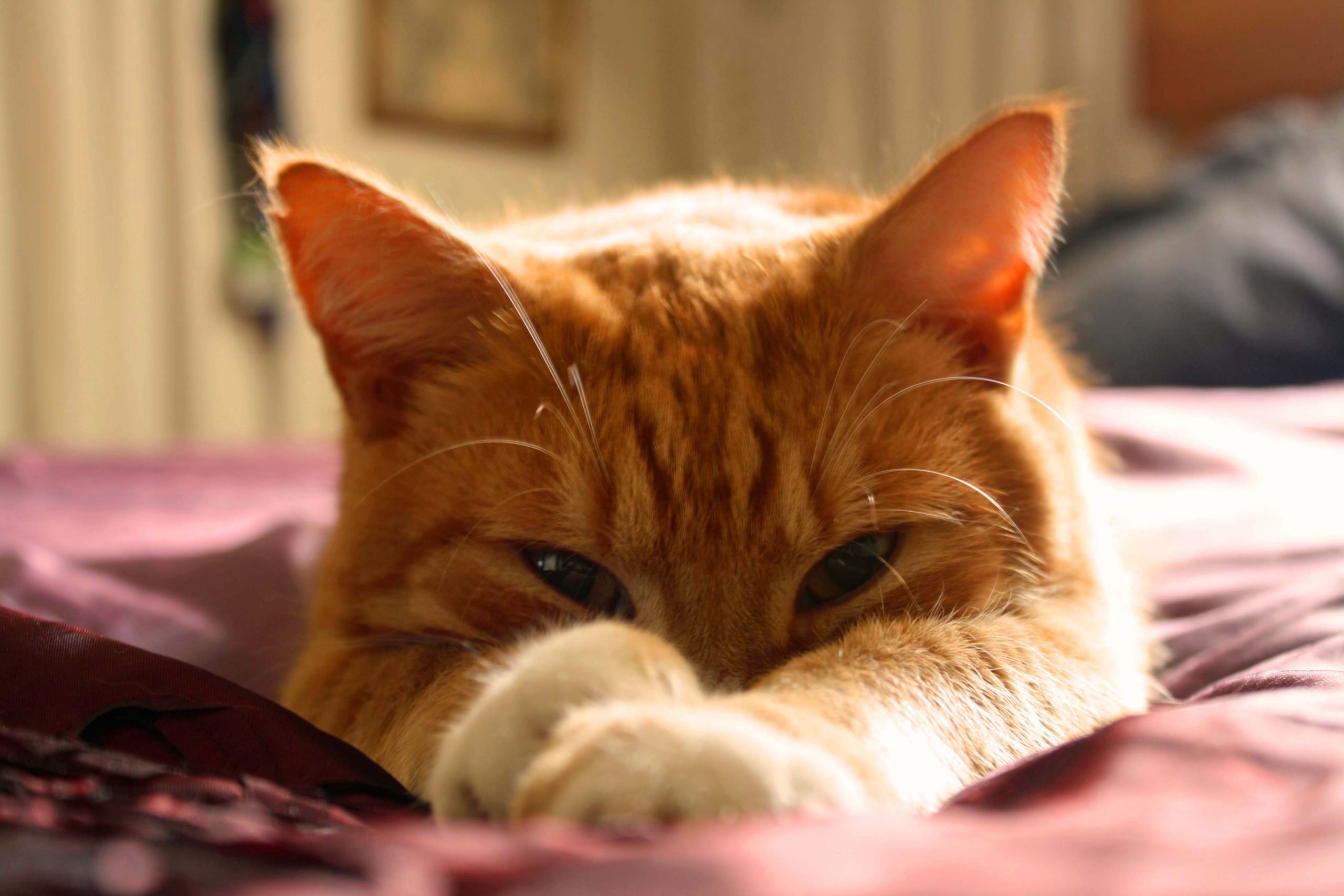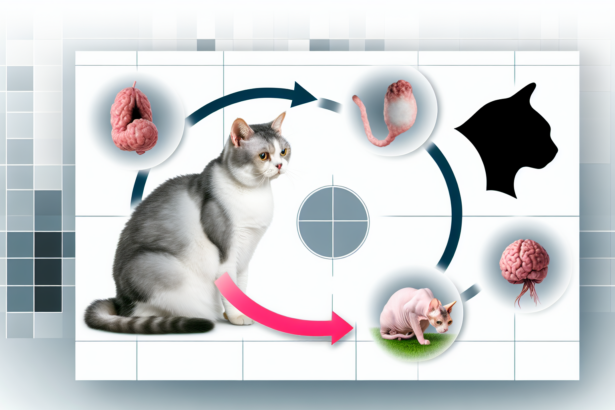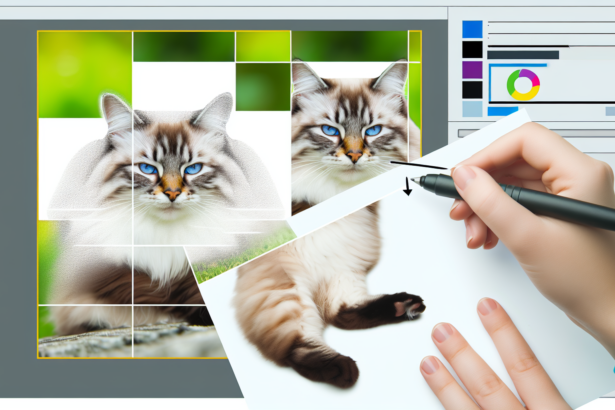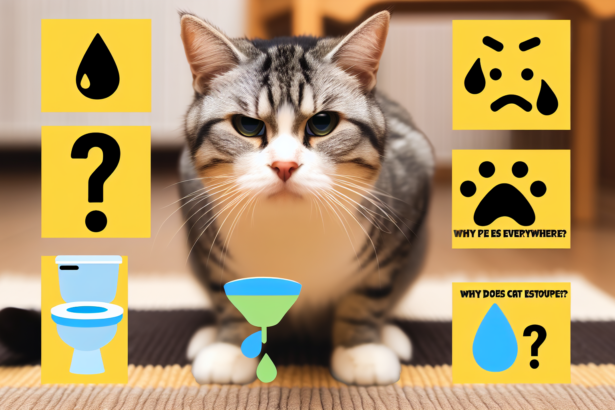Why does my cat bite? Understanding this mysterious feline behavior
Why do cats bite? It’s a question all feline lovers have asked themselves at one time or another. Between overflowing affection and unexpected little nibbles, it’s sometimes hard to know where you stand! Discover with me the surprising reasons behind this mysterious behavior.
- Why does my cat bite? Understanding this mysterious feline behavior
- Nibbling to express affection
- Nibbling to play and stimulate instincts
- Nibbling due to stress or anxiety
- Nibbling associated with dental or gum pain
- 5 surprising reasons why your cat bites
- Nibbling to get your attention
- Nibbling out of boredom or lack of stimulation
- Nibbling to mark territory
- Nibbling linked to early weaning
- How can you react effectively to your cat’s nipping?
- Adopt the right reflexes at the first bite
- Offer suitable alternatives to biting
- Positively reinforcing good behavior
- Prevent biting in your cat for good: practical advice
- FAQ: Frequently asked questions about biting in cats
Nibbling to express affection
Does your cat gently nibble your hand during cuddles? Don’t worry, it’s often a sign of love! These affectionate nibbles, known as “love bites”, are your cat’s way of showing his affection for you.
- How can you tell the difference between affection and aggression? Affectionate nips are gentle, controlled and often accompanied by purring. An aggressive bite, on the other hand, is stronger and more sudden.
- React positively: When he nibbles gently, stroke him gently to reinforce this tender behavior.
Original tip: If your cat bites too hard, let out a high-pitched cry, like a kitten would. This will tell him that he needs to tone it down!
Nibbling to play and stimulate instincts
Cats are natural predators, and play is essential to satisfy their instincts. Nibbling is an integral part of their playful behavior, especially in young cats.
- Suitable toys: Choose interactive toys or stuffed animals specially designed for chewing, such as catnip-filled toys.
- Tips to limit excess: If your cat gets too excited, take a break and redirect her to an appropriate toy.
Find out how to choose the best toys for your feline in our article on the best kitten toys.
Nibbling due to stress or anxiety
Yes, even our furballs can be stressed! Compulsive nipping can be a telltale sign of anxiety in your cat.
- Signs to watch for: Frequent and repetitive nipping, excessive licking or loss of appetite.
- Common causes: Changes in environment, arrival of a new pet or prolonged solitude.
- Practical solutions: Create a quiet space, use soothing pheromone diffusers or consult a veterinary behaviorist.
Nibbling associated with dental or gum pain
Is your cat suddenly biting everything in sight? He may be suffering from dental or gum pain.
- Symptoms: Bad breath, excessive salivation or refusal to eat kibble.
- Oral hygiene: Regularly brush your cat’s teeth with a suitable toothpaste to prevent these aches and pains.
- When to consult: If symptoms persist, make an appointment with your veterinarian as soon as possible.
According to a recent Cornell University study, nearly 70% of cats over 3 years of age suffer from dental problems(source).
5 surprising reasons why your cat bites
Nibbling to get your attention
Does your cat nip at your ankles when you’re busy? He’s probably trying to get your attention!
- React effectively: Ignore the behavior and reward it when it gets your attention in a gentler way.
- Positive redirection: Suggest a play session to channel his energy.
Nibbling out of boredom or lack of stimulation
A bored cat can quickly become a compulsive chewer. Here’s what to do about it:
- Stimulating activities: Hide treats around the house or set up a cat tree with different levels to keep him occupied.
- Enriching environment: Alternate toys regularly to maintain interest.
Discover other ideas for entertaining your cat in our article on how to keep an indoor cat occupied.
Nibbling to mark territory
Surprise: your cat can chew to deposit its scent and mark its territory!
- Differentiating between territoriality and aggression: Territorial nipping is generally gentle and targeted at specific objects.
- Gentle management: Offer scratching posts and objects dedicated to marking to channel this behavior.
Nibbling linked to early weaning
A kitten weaned too early may retain the habit of chewing to compensate for this lack of affection.
- Accompanying your cat: Offer soft, reassuring cuddly toys to satisfy this need.
- Practical advice: Strengthen your bond with regular cuddles and quiet play sessions.
How can you react effectively to your cat’s nipping?
Adopt the right reflexes at the first bite
- Common mistake to avoid: Never physically punish your cat, as this will only increase stress and aggravate the behavior.
- Gentle methods: Calmly redirect his attention to an appropriate toy.
- The importance of consistency: Always react in the same way to avoid confusion.
Offer suitable alternatives to biting
- Recommended toys: Choose sturdy toys adapted to your cat’s size.
- Choosing the right toys: Vary textures and shapes to maintain interest.
Positively reinforcing good behavior
- Reward effectively: Praise him as soon as he stops chewing and offer him a treat.
- Mistake to avoid: Never unintentionally reward a nibble by giving it attention at the time.
Prevent biting in your cat for good: practical advice
- Create a reassuring, stable space.
- Provide daily physical and mental stimulation.
- Monitor his oral health regularly.
Understanding why cats chew will help you strengthen your bond with your favorite furball. Find even more tips on Pawtounes.fr!
FAQ: Frequently asked questions about biting in cats
- Why does my cat bite my fingers when I stroke him? It’s often a sign of affection.
- How can I tell if my cat is biting out of affection or aggression? Observe its posture and the strength of the nibble.
- What toys should I choose to limit my cat’s biting? Choose durable toys adapted to your child’s size.
- When should I consult a vet about my cat’s excessive nipping? If the behavior persists despite your intervention.






